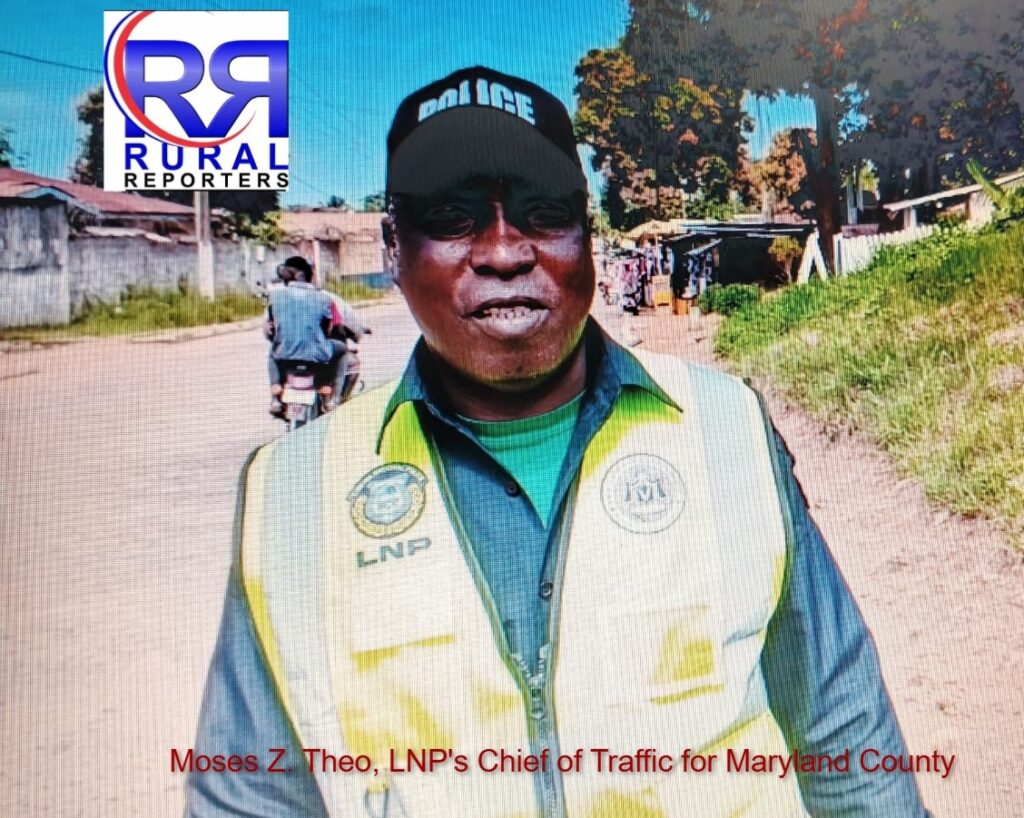By Rocheford T. Gardiner
Harper – The Liberia National Police (LNP) on Tuesday launched a large-scale traffic regulation and inspection exercises in Maryland County, with LNP’s Chief of Traffic for the county, Moses Z. Theo disclosing that the initiative is an expansion of police regular duties.
Theo told Rural Reporters News Network (RRNN) that the stepped-up enforcement exercises were necessary due to a significant increase in vehicular traffic in the area.
He attributed this rise to Liberia’s southeastern region’s improved road conditions, which have made roads in that part of the country much more passable even during the peak of the rainy season, as well as renewed emphasis on road safety by the central government.
This infrastructure improvement is a result of significant road repairs, which began in January last year by the Ministry of Public Works, revitalizing a region where roads were neglected for over a decade.
Consequently, the cost of living has reportedly decreased as local markets are now well-stocked with basic commodities, preventing price hiking and hoarding.
However, the improved roads have not translated to lower transportation fares, with marketers and small business owners, who frequent the Harper-Monrovia route calling on President Joseph N. Boakai to intervene.
They report that despite good road conditions and available fuel, commercial drivers continue to charge high fares, with a one-way trip from Monrovia costing as much as LRD12,000 (approximately US$60) per passenger.
At a popular parking station in Pleebo City, Maryland County’s commercial hub, commercial drivers defended the high fares, alleging that numerous security checkpoints, which had been previously removed by order of Police Inspector General Gregory Coleman, have reappeared, particularly at night.
“These security officers charge as much as LRD500 at each checkpoint,” stated Samuel Weah, a pickup driver, who added that the checkpoints are often manned by various agencies of the Liberia National Joint Security including officers of the Liberia National Fire Service, the LNP, and the Liberia Drug Enforcement Agency (LDEA), an act which he lamented as creating a frustrating and costly ordeal.
Weah alleged that extortion is common even when a vehicle’s documents are in order, giving an example of LDEA officers demanding that entire loads be untied and inspected for “contraband,” a time-consuming process.
“That is why we just pay them the money, because we don’t want to waste time,” he narrated.
He identified checkpoints at Sallala, Gbarnga, Ganta, Zwedru (1 and 2), and the Sapo National Park intersection as being particularly notorious for harassing and extorting monies from drivers.
Police officers on the other hand; claim that most of the drivers are in the habit of overloading and/ or operating vehicles that are not road-worthy, leaving them (police officers) with the only option of executing their duties
Whatever the case may be, it is most often than not passengers, who bear the brunt of this and until central government intervenes, this is going to continue for a long time, according to our correspondent in the area.



